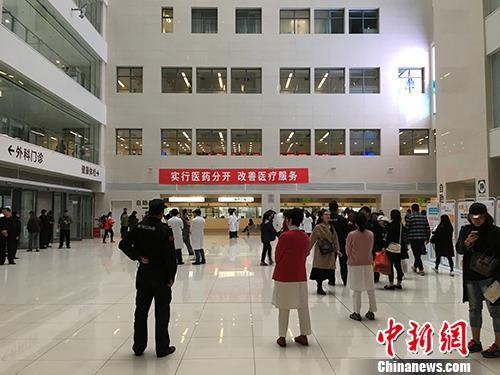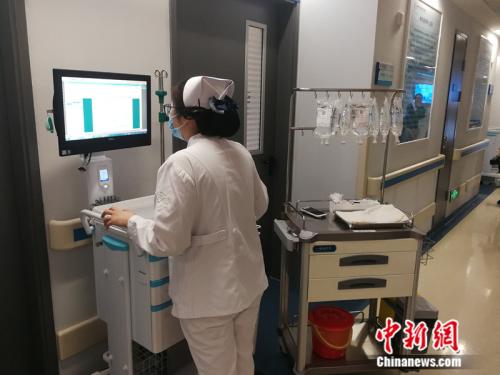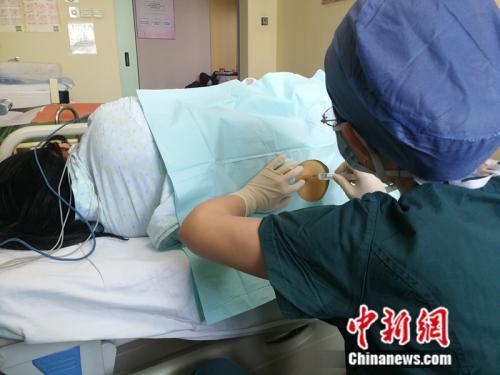Beijing, June 15 (Reporter Zhang Ni) At 0: 00 today, the comprehensive reform of medical consumption linkage in Beijing was officially implemented, and nearly 3,700 medical institutions in the city charged according to the purchase price of medical consumables. This means that Beijing will bid farewell to "medical care by consumption" after the abolition of "medical care by medicine".

Nearly 3,700 medical institutions in Beijing canceled the price increase of medical consumables.
The addition of drugs and medical consumables in medical institutions has always been a "stubborn disease" that has been criticized by the public. In 2017, all public hospitals in China cancelled the drug addition policy that had been implemented for more than 60 years. Now, Beijing will "cut the knife" to medical consumables.
At present, medical institutions charge patients for the difference between the purchase price of consumables, which is 5% above the purchase price of consumables in 500 yuan and 10% below 500 yuan.
In December 2018, Beijing formulated and issued a comprehensive reform policy of medical consumption linkage in light of the actual situation. According to the deployment, this reform was officially implemented at 0: 00 on June 15, 2019.
After canceling the addition of medical consumables, medical institutions will charge directly according to the purchase price, and patients’ spending on medical consumables will be reduced.
The scope of this reform is public medical institutions and military medical institutions in Beijing organized by the government, institutions and state-owned enterprises within the administrative area of Beijing, social medical institutions purchased by the government and social medical institutions designated by basic medical insurance, and they voluntarily apply for participation. According to statistics, nearly 3,700 medical institutions in Beijing participated in the reform.
According to the Beijing Municipal Commission of Health and Wellness, the main contents of this reform can be summarized as "five ones", namely "one reduction, one promotion, one cancellation, one purchase and one improvement".
"One reduction" refers to reducing the price of inspection items carried out by instruments and equipment; "One promotion" refers to the promotion of project prices that reflect the labor value of medical personnel, such as traditional Chinese medicine, pathology, psychiatry, rehabilitation and surgery; "Cancellation" refers to the cancellation of the 5% or 10% price increase policy of medical consumables in medical institutions, and charging according to the purchase price of medical consumables; "One procurement" refers to the joint procurement of medical consumables and the procurement of drugs with quantity; "One improvement" means improving medical services and strengthening comprehensive supervision.
In terms of joint procurement of medical consumables and quantity procurement of drugs, six types of medical consumables, such as intracardiac vascular stents and artificial joints, are organized and implemented within the scope of public medical institutions at or above the second level in Beijing (excluding military-affiliated medical institutions).
At present, the joint procurement of medical consumables in Beijing, Tianjin and Hebei has completed the procurement of six types of consumables, such as artificial joints and intracardiac vascular stents, with an average price drop of 15.5%, which can save about 500 million yuan for medical consumables in Beijing one year.
In addition, since March 23, 25 countries in Beijing have concentrated on purchasing drugs, with an average price reduction of 52%. It is estimated that the annual drug cost will be saved by about 1.5 billion yuan.

The cost has gone down, up and down, and the hospitalization expenses have increased slightly.
After the implementation of the reform, how will the people pay for medical treatment change?
According to the calculation, the total medical expenses in Beijing are basically balanced after the reform. Considering the medical insurance reimbursement policy, the outpatient expenses are basically flat, while the inpatient expenses increase slightly.
However, for individual patients, the cost of patients with different diseases has decreased and increased. For example, for diseases with more high-value consumables, the cost may decrease; The cost of diseases mainly treated by technical labor services may increase.
Lei Haichao, director of the Beijing Municipal Health and Wellness Commission, stressed that relevant departments have made detailed analysis, and the diseases that may cause obvious cost increase due to price adjustment will be solved through fee control and medical insurance policies combined with rescue policies to ensure that the burden of low-income families and difficult groups is stable at an affordable level.
It is worth mentioning that in reducing the price of large-scale instruments and equipment inspection items, this reform will cancel the price difference between imported and domestic reagents and different inspection methods, guide medical institutions to choose appropriate reagents and inspection methods, and further standardize medical service behavior.
Lei Haichao emphasized that this reform decided to cancel the addition of medical consumables, and medical institutions will no longer charge any additional fees for medical consumables. By canceling the addition of medical consumables and reducing some inspection costs, medical consumables such as drugs, stents and catheters will no longer bring additional benefits to medical institutions.
It is reported that the Beijing municipal market supervision and management department will earnestly safeguard the legitimate interests of the masses, rectify and standardize the price order of the medical industry, and severely crack down on all kinds of price violations.

Accelerate everywhere "Change birds in cages"The price of medical services has gradually increased.
In recent years, a series of measures have been intensively introduced from the national level to the local level to solve the problem of expensive and difficult medical treatment for ordinary people.
In many places, while canceling the traditional income such as drug addition, they are adjusting the price of medical services to realize "changing cages for birds".
National Health Commission revealed at a press conference held on the 14th that on the basis of completely canceling drug addition in 2017 and simultaneously adjusting medical service prices, 19 provinces will adjust medical service prices again in 2018 to further improve the new compensation mechanism of public hospitals.
For example, Shanghai has adjusted the prices of 1,894 medical services five times, giving priority to those services that have a wide range of applications, a large deviation from the price comparison relationship, serious inversion with the actual cost, lower prices than neighboring and similar cities, and great repercussions in the industry.
Sanming City, Fujian Province has adjusted the prices of 4,318 medical services for six times. The proportion of medical service income (excluding drugs, consumables, inspection and testing income) in public hospitals has increased to 42%, and the highest hospital has reached 68.6%. The income structure of hospitals has been optimized.
In addition, after the implementation of the comprehensive reform of medicine separation in Beijing in 2017, the construction of graded diagnosis and treatment system has made breakthrough progress, and the primary medical and health services have increased by nearly 30%.
In addition to continuing to deepen the reform of medical service price, National Health Commission has made it clear that in the future, we should start with improving salary, optimizing development space and professional environment, and improving social status, so as to fully mobilize the enthusiasm of the majority of medical staff.
In the future, we will steadily improve the salary level of medical staff, reform the salary structure, pay attention to long-term incentives, and pay attention to the inclination of junior medical staff, so that the majority of medical staff can get sunny, reasonable, decent and dignified remuneration by relying on knowledge, technology and labor.
In addition, it is necessary to focus on raising the prices of medical services such as diagnosis, surgery, rehabilitation, nursing and traditional Chinese medicine, so that the value of technical services of medical staff can be reflected, and the level of concentration ability of medical staff can be guided to improve, and they can concentrate on learning, growth and progress, so as to benefit the broad masses of the people. (End)